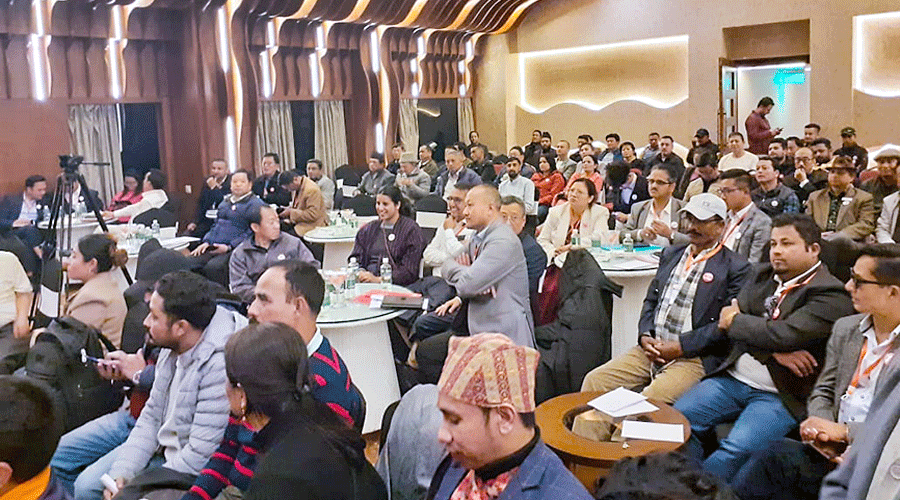An all-party meeting called by the apolitical Joint Action Council (JAC) on Saturday urged the Sikkim government to get a resolution passed in the Assembly or come out with a notification to ensure the protection of the term “Sikkimese” from any infringement in light of the recent Supreme Court judgment that sought to expand the definition by including Indian origin old settlers of the state in it.
A resolution adopted at the meeting, which was attended by eight prominent regional and national political parties, said even though the court had stated that the inclusion of the old settlers within the definition of “Sikkimese” was only for the purpose of granting income tax exemption, any dilution of the term went against the letter and spirit of Article 371F of the Constitution, which provides special status to Sikkim that had merged with India in 1975.
“(The) State Government should pass a Resolution in the State Assembly of Sikkim or issue an official notification stating that the ‘Sikkimese’ term shall not be infringed at any cost either for the purpose of Income Tax exemption or any other rights and privileges as guaranteed to (the) Sikkimese people under Article 371F of the Constitution of India,” said the resolution, adding that Article 371F being the soul of Sikkim, it was non-negotiable.
The Supreme Court had in its January 13 judgment extended income tax exemption to the old settlers who have been living in Sikkim since before its merger by asking the Centre to amend the term “Sikkimese” as defined in Section 10 (26AAA) of the Income Tax Act, 1961 by including them in it alongside the members of the Bhutia, Lepcha and Nepali communities, whose names, unlike the old settlers, are registered under the Register of Sikkim Subjects.
The Assembly had on January 9 passed a resolution asserting the distinct identity of the Sikkimese people and the sanctity of Article 371F, but stopped short of mentioning the Supreme Court order on amending the definition of “Sikkimese” for the purpose of income tax exemption.
The all-party resolution, which included both the ruling Sikkim Krantikari Morcha and the main opposition Sikkim Democratic Front, also asked the state government to “constitute a committee of eminent legal and Constitutional experts to study all the documents in the light of historical perspective to safeguard the rights and privileges of Sikkimese as enshrined in the Old Laws protected by the Article 371F of the Constitution of India from further erosion and dilution.”
The government, the resolution said, should also immediately pass a resolution seeking a parliamentary debate on the Representation of People’s (Amendment) Act 1980 according to the assurance of a parliamentary committee on the reservation of seats in the Assembly for the Sikkimese Nepali community based on provisions of Article 371F and 8th May Tripartite Agreement 1973.
In the 32-member Assembly, 16 seats each were reserved for the Bhutia-Lepcha communities and the Nepali community till 1979 when the Nepali seats were abolished through a presidential ordinance.
The fourth and final resolution adopted at the meeting called for the immediate cancellation of the provision of residential certificates that are issued to those permanent residents who are not registered under the Register of Sikkim Subjects but have been living in the state since before its merger.











